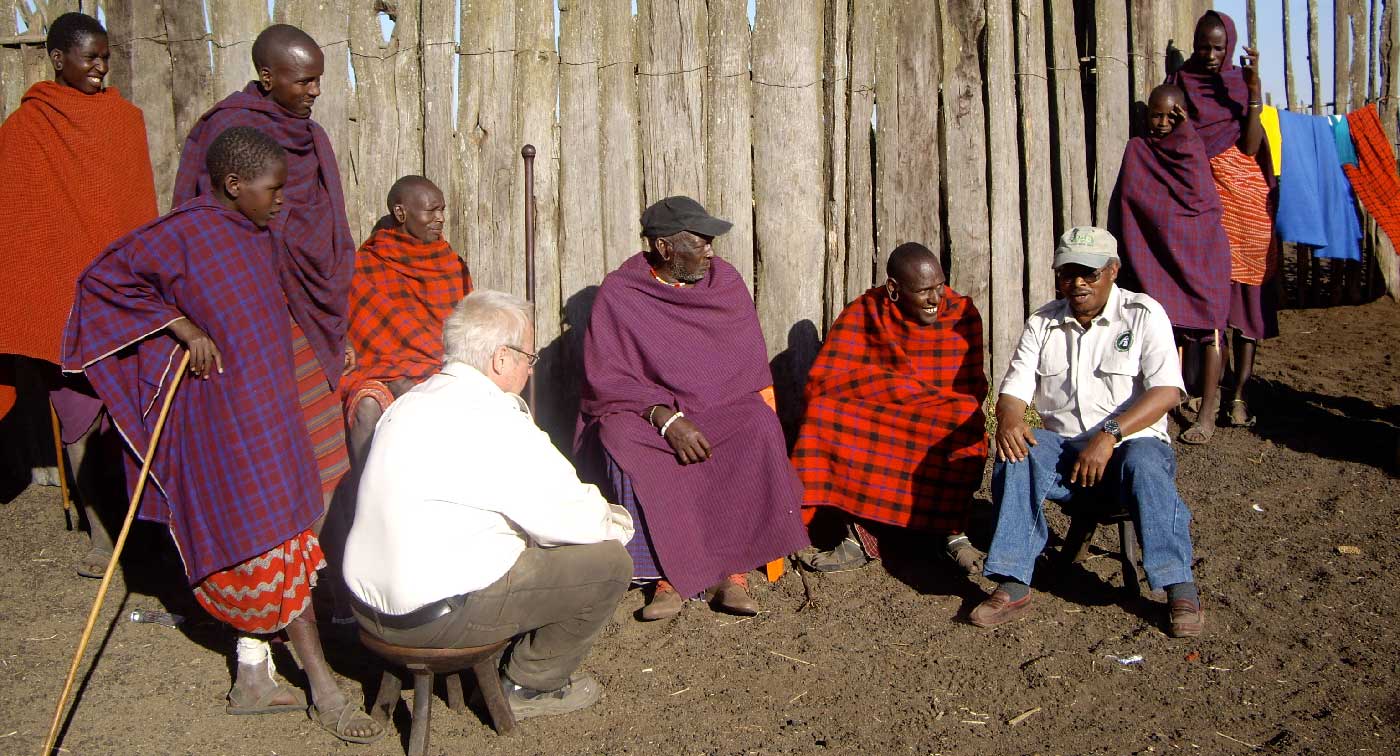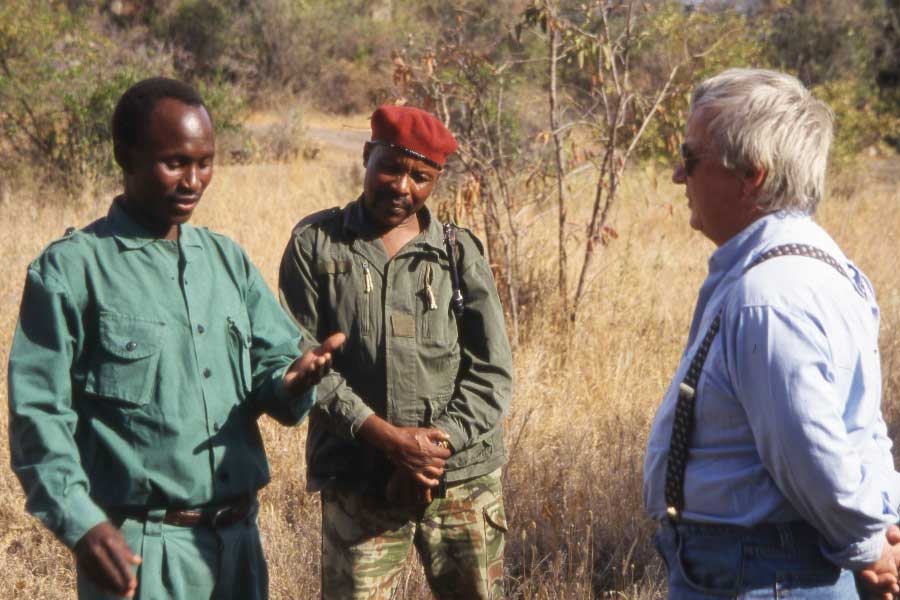In addition, they checked the area around the Serengeti to find a better route. The Maasai people have lived around the original route, which runs through the middle of the Serengeti. However, they do not hunt or farm, so the road would not be of use to them.
If the route could be shifted to the south of the Serengeti, where there were many farms, it would be convenient for both the transport agricultural products and for children going back and forth to school. This would be economically much better than the original plan. Professor Borner continued explaining this to the Government of Tanzania, and finally they agreed to change the route.













